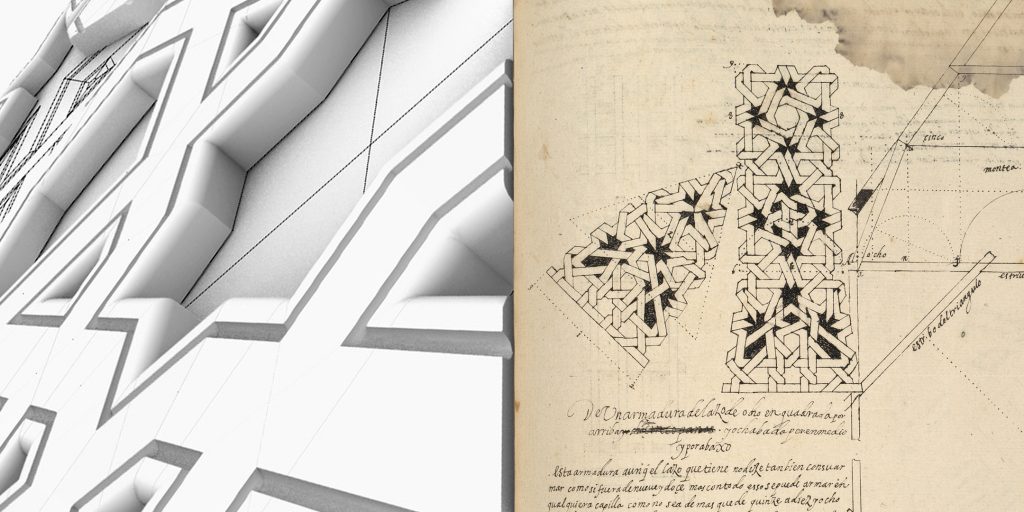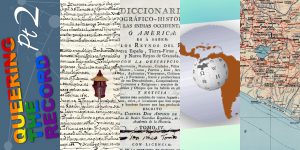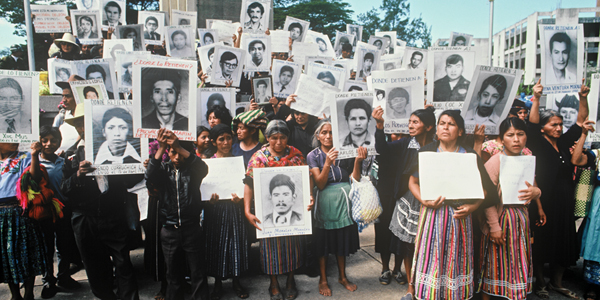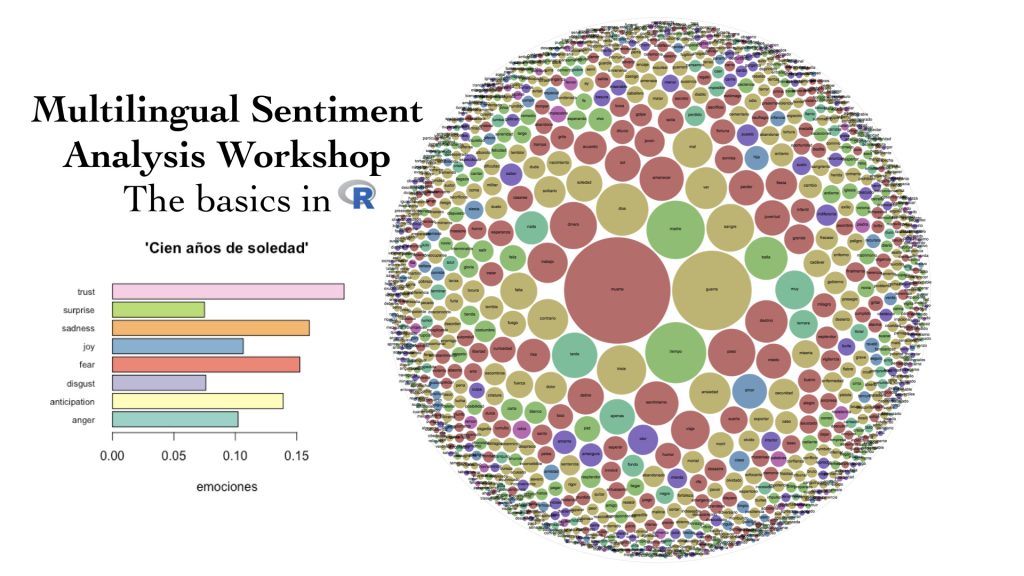Upcoming
From Almanacs to Rhizomes: Caribbean Lives in Code(s) of Relation
Friday, November 4, 3-4 pm (CDT), Online
LLILAS Benson “Digital Scholarship in the Americas” Speaker Series, co-sponsored by the Archiving Black América Initiative.
Historically, the Caribbean has always sustained itself through networks and relations that emerge from conquest, oppression and vulnerability of its peoples. In the era of the digital, this is no different; digital code and technologies provide space for engagement amidst the realities of ongoing planetary crises – climate, disease, and continued colonialism. The aim of this talk is to connect vernacular and formal methodologies through which Caribbean living and survival take shape and the ways that digital humanities, and digital pedagogy specifically, invite new modes of survival, activism, community engagement and legacy building toward a Caribbean future.
Dr. Schuyler Esprit is the Founder and Director of Create Caribbean Research Institute, the first digital humanities center in the Caribbean. As a scholar of Caribbean literary and cultural studies, her research areas of interest include Caribbean literary and cultural studies, environmental and ecological humanities, and digital humanities. Dr. Esprit continues to write and publish on Caribbean literature, including on the impact of reading in communities in real and virtual spaces. Her book, Imprinted: The Social History of Caribbean Reading, is forthcoming with Papillote Press.
Past
Old sources, new technologies: Developing computational approaches for the analysis of Mexican historical documents
Monday, April 12, 10-11:30 am (CST / GMT-6), Online

LLILAS Benson “Digital Scholarship in the Americas” Speaker Series
Dr. Patricia Murrieta-Flores will introduce the project sponsored by the Transatlantic Platform for the Humanities and Social Sciences (T-AP) called “Digging into Early Colonial Mexico: a large-scale computational analysis of historical documents”, and some of its results. Taking as a basis the historical corpus of the sixteenth-century Relaciones Geográficas de Nueva España (the Geographic Reports of New Spain), the project main objectives have been: 1) to adapt and develop techniques from Artificial Intelligence, including aspects of Natural Language Processing, Text Mining and Geographic Information Systems for the extraction and analysis of historical information from this source, and 2) to design computational methodologies for the identification of possible large-scale historical patterns. This research is allowing us to clarify some of the essential geographic questions related to the period and the colonial situation in this territory. I will also present a methodology termed Geographical Text Analysis and some of the most critical outputs from this project. These include software developed to carry out this type of analysis, the first sixteenth-century digital gazetteer of Mexico and Guatemala, and the first experiments using Natural Language Processing to automatically annotate the Relaciones corpus.
Dr. Patricia Murrieta-Flores is the Co-Director of the Digital Humanities Hub at Lancaster University. My interest lies in the application of technologies for Humanities and my primary research area is the Spatial Humanities. My main focus is the investigation of different aspects of space, place and time using a range of technologies including GIS, NLP, Machine Learning and Corpus Linguistics approaches. I am PI on the Transatlantic Platform (T-AP) funded project ‘Digging into Early Colonial Mexico: A large-scale computational analysis of 16th-century historical sources’, and also a collaborator and Co-I in multiple projects funded by the ERC, ESRC, AHRC, HERA, and the Paul Mellon Centre among others. I have edited and contributed to numerous books on Digital Humanities, Cultural Heritage, the use of GIS and other technologies in Archaeology, History, and Literature, and I’ve published multiple articles exploring theories and methodologies related to space and place.
Free and open to the public online. Registration is required through Evenbrite to receive Zoom webinar link by Sunday, April 11 through https://old-sources-new-technologies.eventbrite.com.
Through the Tourist’s Lens: Using Social Media and Machine Learning to Understand Visual Experiences at Peruvian Archaeological Heritage Sites
Wednesday, October 21, 1:00–2:00 pm, Online

LLILAS Benson “Digital Scholarship in the Americas” Speaker Series
The intersection of social media and heritage tourism in recent decades has created an abundance of open-source imagery that remains underutilized by the archaeological heritage community and digital scholars. When paired with machine learning algorithms, photographs produced by tourists – as well as historic images in museum collections – can provide researchers with new opportunities to understand how historic site representations and visual expectations drive travel narratives and heritage perceptions that are curated on media-sharing platforms. Using Cuzco, Peru as a case study, Payntar compares how modern tourists perpetuate the visual perspectives of 19th and 20th century explorers through scene and object-based feature extraction – a process that would be impossible to replicate through manual labor.
Nicole D. Payntar is a Ph.D. Candidate in the Department of Anthropology at the University of Texas at Austin. Her research focuses on heritage tourism, machine learning, and archaeology in Peru. She received her M.A. in Archaeology from Durham University in 2012 and has previously served on the Antiquities Coalition’s #CultureUnderThreat Task Force and as the former Assistant Director of Saving Antiquities for Everyone (SAFE).
Free and open to the public online. Registration is required for livestream through bit.ly/DSAmericas2020.
Rediscovering Fray Andres de San Miguel’s 17th-Century Manuscript through 3D Printing
Wednesday, October 24, 12:30–2 pm, Benson Conference Room

LLILAS Benson “Digital Scholarship in the Americas” Speaker Series
National Library Week A-Thons
April 8-12, 12:30–3:30pm, PCL Learning Lab 2

Learn new digital skills and help make your University of Texas Libraries collections more discoverable along the way! No prior knowledge/experience or foreign language proficiency required—friendly UT Libraries staff will be offering step-by-step trainings on the different digital tools/platforms and supply laptops.
- Monday, April 8: Wikipedia Edit-a-thon: Queering the Record, Part 2
Improve Wikipedia articles on LGBTQIA+ issues - Tuesday, April 9: Transcribe-a-thon: Decipher + Translate the Archive
Broaden literacy of handwritten, multilingual collection materials - Wednesday, April 10: Index-a-thon: Multilingual Texts & LatAm Gazeteer
Classify and tag texts for research communities - Thursday, April 11: Wikipedia Edit-a-thon: Chicana Activists & Indigenous Languages
Connect Wikipedia articles to the Benson’s archives - Friday, April 12: Georeference-a-thon: UT Libraries’ Map Collections
Help make Perry-Castañeda Library (PCL) and Benson historical map collections GIS-ready
Event is free and open to the public. For more details and registration, visit our Eventbrite page. Light refreshments and snacks will be served. Stay for the duration or just pop in to help with a few tasks—all contributions are greatly appreciated. We hope to see you there!
LLILAS Benson Digital Initiatives Open House
April 19, 2-4pm, Benson Second Floor
Come check out the work of LLILAS Benson’s Digital Initiatives, including the Archive of the Indigenous Languages of Latin America (AILLA), Post-Custodial Archives, and the Digital Scholarship Office. Light refreshments will be served.
The Grupo de Apoyo Mutuo Digital Archive: Historical Memory and Guatemala’s Disappeared
Wednesday, February 13, 12–1:30 pm, Benson Conference Room, SRH 1.208
No prior knowledge necessary. Students, faculty, and staff from any discipline are encouraged to attend. For questions, please contact Albert A. Palacios at aapalacios@austin.utexas.edu.

LLILAS Benson “Digital Scholarship in the Americas” Speaker Series
Co-Sponsored by the Mellon Foundation
This talk describes the Grupo de Apoyo Mutuo (GAM) Digital Archive – a collaborative, post-custodial project that is digitizing, preserving, and providing access to documentation of human rights violations during Guatemala’s armed internal conflict (1960-1996). The digital archive is a partnership between the GAM, one of Guatemala’s oldest and most respected human rights organizations, and the Digital Scholarship (DS) team at Haverford College. Dr. Alex Galarza will discuss how the project team – composed of students, scholars, and human rights activists – has centered pedagogy and sustainability in the work of creating a digital archive that aims to shift historical memory of the armed conflict by sharing case files about forced disappearances and other atrocities. These efforts raise important issues of ethics in working with and sharing traumatic materials as well as privacy for victims of human rights abuses.
Dr. Galarza is the Postdoctoral Fellow in Data Curation for Latin American and Caribbean Studies at Haverford College and leads the Grupo de Apoyo Mutuo (GAM) Digital Archive. He completed his Ph.D. in Latin American History at Michigan State University where his work focused on soccer clubs and urban politics in Buenos Aires. He is the co-founder of footballscholars.org, an online platform for soccer scholarship and the editor of GradHacker, an InsideHigherEd.com blog sharing advice on graduate studies.
Light refreshments will be served. Registration opens Tuesday, January 22 and closes Tuesday, February 12 at 5 PM through Eventbrite.
Multilingual Sentiment Analysis Workshop
Wednesday, February 13, 10-11:30 am, PCL Learning Lab 4

University of Texas Libraries’ “Digital Humanities Workshops @ PCL” Series
In this text analysis workshop, we will be learning how to perform sentiment analysis, a method to determine if a text is positive or negative, using R programming language and narratives as a multilingual dataset. Jennifer Isasi (CLIR/DLF Postdoctoral Fellow in Data Curation) will teach the basics on how to use the syuzhet package in R implementing the NRC Emotion Lexicon to extract data on eight basic emotions (anger, fear, anticipation, trust, surprise, sadness, joy, and disgust) and two sentiments (negative and positive) in English, Spanish and Portuguese.
Web Mapping: Intro to ArcGIS Story Maps using Benson collections
Friday, March 1, 3–4:30 am, PCL Learning Lab 1

University of Texas Libraries’ “Data & Donuts: Geospatial Edition” Series
Discover how you can take advantage of the cloud to store and share your geospatial data. Michael Shensky (UT Libraries’ Geospatial Data Coordinator) and Albert A. Palacios (LLILAS Benson Digital Scholarship Coordinator) will will teach you the basics of creating custom interactive maps in ArcGIS Online through an activity that allows you to follow along and gain hands on experience using the Benson’s geospatial special collections.
Distant Viewing Posters from El Salvador’s Civil War
Saturday, March 2, 10–11:30 am, PCL Learning Lab 4

In conjunction with the Institute of Latin American Studies Student Association Conference
Sponsored by the Mellon Foundation
Digitized visual materials are evocative artifacts for research. Finding insights, however, can be overwhelming if we are exploring vast collections of images. In this workshop, we will be using ImagePlot to visualize and plot a selection of posters from the Museum of the Word and Image (MUPI) in El Salvador, accessible through the Benson’s Latin American Digital Initiatives. Participants will learn how to create metadata from image elements and understand how this information can help in the navigation of collections.
No prior knowledge necessary. In order to participate, you must bring your own computer and download ImagePlot prior to the event. Students, faculty, and staff from any discipline are encouraged to attend. The workshop will be in English and Spanish.
Lunch will be served. Space is limited. Registration opens Friday, February 1, and closes Wednesday, February 27 through Eventbrite pages for UT affiliates and Non-UT ILASSA participants.
